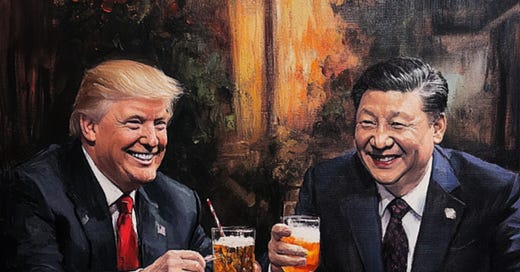Trump could dictate China's macroeconomic policy decisions: Liu Yuanchun
The Shanghai economics professor also believes a US recession is inevitable.
Keep reading with a 7-day free trial
Subscribe to China Banking News to keep reading this post and get 7 days of free access to the full post archives.




